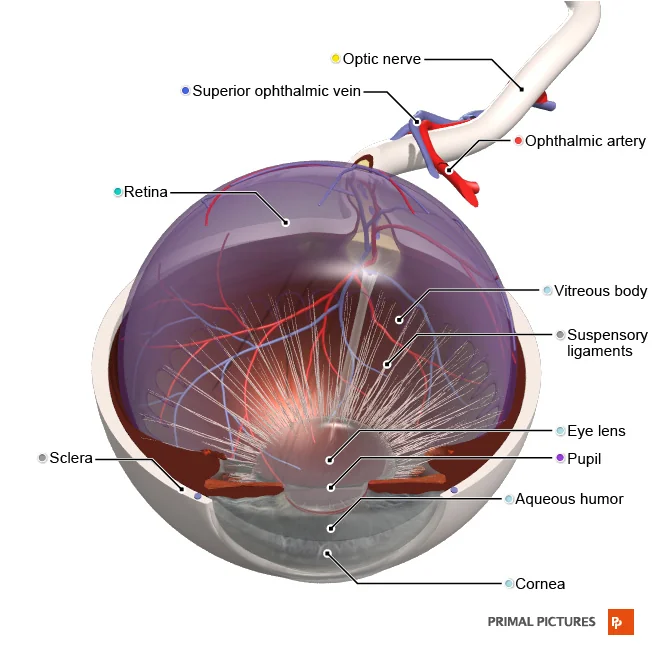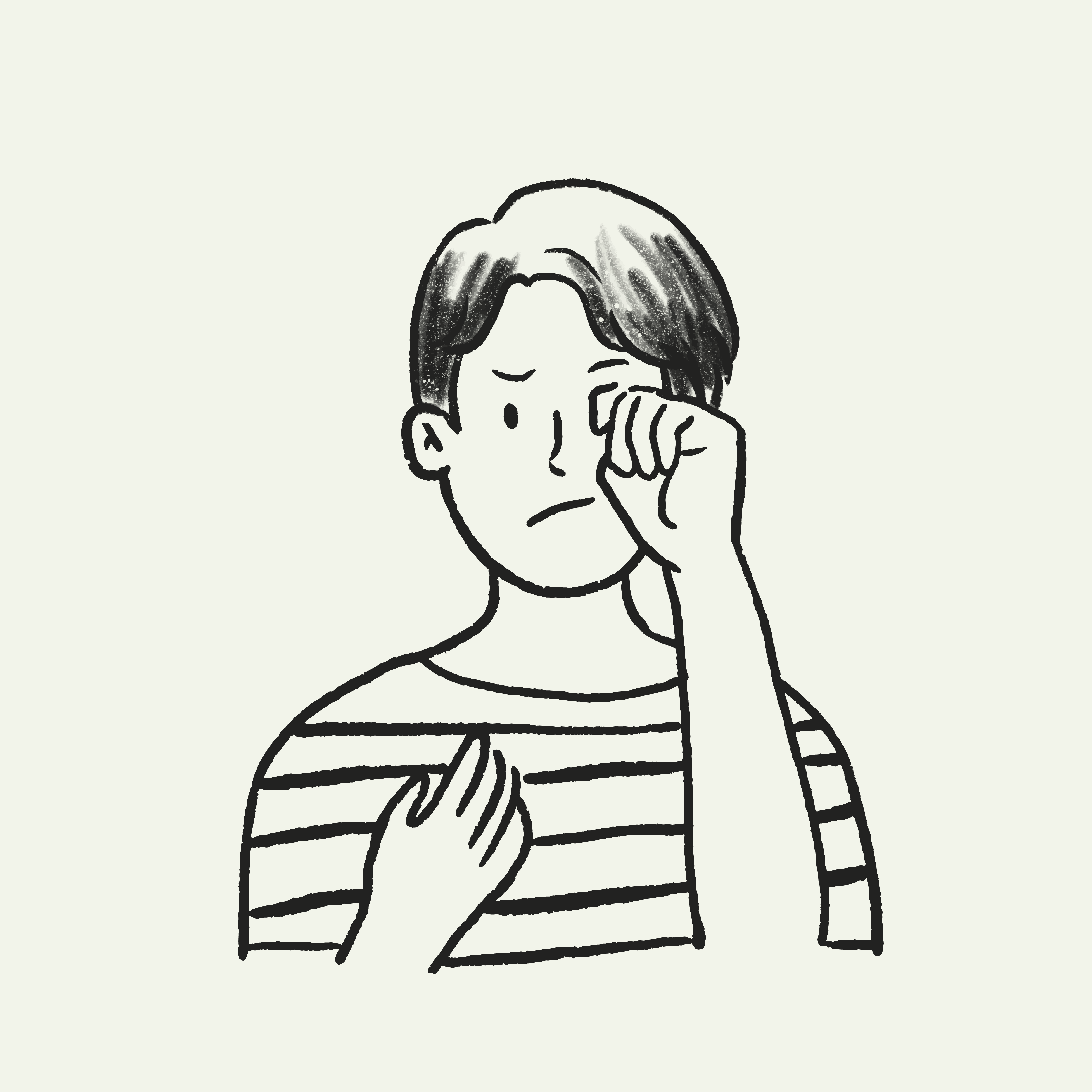What do allergens, late-night study sessions, and stray eyelashes have in common? Each can cause your eyes to become irritated, itching, and burning until you are forced to seek relief by rubbing them. Maybe you often find yourself pressing the heels of your palms into your eye sockets after a stressful meeting or massaging your closed eyes with your fingertips to soothe yourself before going to bed. Read on to find out exactly why you may find it so irresistible to rub your eyes, yet why you should consider immediately putting an end to this very common habit.
Why do we rub our eyes?
Whether pollen or fatigue is the cause, let’s face it: Sometimes nothing feels better than rubbing your eyes to get some relief. But why does it feel so good? For starters, rubbing your eyes stimulates the production of tears. That means whatever allergens are making your eyes itchy instantly get flushed away. If your eyes are dry and tired, tears provide immediate lubricating relief. Furthermore, applying pressure to your eyes stimulates the oculocardiac reflex, also known as trigeminovagal reflex or the Aschner reflex. This slows the heart rate, which in turn can make you feel calmer and more relaxed.
Since your body seems to respond positively to rubbing your eyes, that must mean that doing so doesn’t pose any dangers, right? Wrong. Although it feels good, habitually rubbing your eyes can potentially lead to some dire consequences. Among these are the increased risk of eye infection of the conjunctiva, the thin, clear membrane that covers the white part of the eye (sclera) and lines the eyelids. This is commonly known as conjunctivitis, or pink eye. Rubbing your eyes can also cause damage to structures of the eye itself, including the retina and iris. Keratoconus, or a thinning and bulging of the cornea, is also linked to vigorous and repeated eye rubbing — and its accompanying increased intraocular pressure can result in permanent vision problems.
The content in this post is from Primal’s 3D Atlas module. To learn more about this or other Primal learning resources, please fill in the form here and our team will be in touch.
What makes up the anatomy of the eye?
To understand the damage that the simple act of rubbing your eyes can do, we must take a closer look at the anatomy of the eye itself. Sometimes said to be the “windows to the soul,” eyes are the organs of vision, responsible for focusing light onto the retina. There, specialized photoreceptors respond to that light, making sight possible.
The eyeball consists of three layers, or tunicae:
-
- Fibrous tunica: The outer layer that is made up of the sclera and cornea, and provides structure.
-
- Vascular tunica: A pigmented, vascular coat supplying nutrients that consists of the choroid, ciliary body, and iris.
-
- Neural tunica: The innermost neural layer for vision, containing the retina, macula lutea, fovea centralis, optic disc, and optic nerve.

The structures within different layers can be divided into optical and neural structures based on their functions. The optical structures of the eye, which allow light through to the retina, include:
-
- Cornea
-
- Aqueous humor
-
- Lens (held behind the aperture of the pupil by the suspensory ligaments of the ciliary body)
-
- Vitreous body
-
- Posterior and anterior chambers
Light signals are processed and sent to the brain via the eye’s neural structures: the retina, which contains light-sensitive cells that convert light into electrical signals, and the optic nerve that connects the retina to the brain.
The eyes are housed in bony cavities in the face called orbits, or eye sockets. These are each comprised of seven bones that keep the eyeball and its related nerves, tendons, muscles, tissue, and vessels in place and protected.
What are the dangers and consequences of eye rubbing?
When you rub your eyes, you run the risk of introducing whatever bacteria or germs are on your hands into your eyeballs. Infections like conjunctivitis can make eyes even more itchy, along with the added risk factor of swelling and crusty discharge.
While eye rubbing can cause temporary issues like pink eye, it can cause more long-lasting issues as well. The risk of damaging the eye by rubbing it increases among individuals who already have pre-existing eye conditions. For instance, for those with glaucoma, who experience increased pressure inside the eye, rubbing the eyes causes that eye pressure to sharply increase, disrupting the eye’s blood flow. Studies show that even a quick elevation in this eye pressure can have serious negative consequences for glaucoma sufferers, causing damage to the glaucomatous axons, neurons in the optic nerve that help transmit signals between the eye and the brain. This damage can result in permanent vision loss.
Permanent vision damage is also a concern among those prone to keratoconus, such as seasonal allergy sufferers dealing with vernal keratoconjunctivitis (VKC), who may find it nearly impossible to stop rubbing their eyes in an attempt to alleviate intense itchiness.
Vigorously and habitually rubbing the eyes weakens and disfigures the cornea, changing its shape from a dome to a cone. This “corneal remodeling” also thins the cornea and causes interference with the way it bends and focuses light rays into the retina, resulting in significantly distorted vision.
Rubbing the eyes can also trigger responses in the body that can affect the way ocular diseases develop or progress. One study found that eye rubbing caused damage to the cells of the conjunctiva while strongly triggering the body’s immune response, causing inflammation and potentially worsening some ocular diseases.
What should you do instead of rubbing your eyes?
Now that you know why rubbing your eyes can feel so good but not be good for you, how can you stop yourself from indulging in the habit? Let’s look at some alternatives to eye rubbing that can provide relief without endangering the health of your eyes. These include:
-
- Using saline eyedrops to lubricate and soothe itchy eyes
-
- Applying a cold gel compress or facemask to reduce inflammation
-
- Gently laying a clean wet washcloth over the eyes
-
- Gently massaging the area around the eyes — but not the eyeballs themselves
-
- Doing something else to occupy your hands, like rubbing your earlobes or squeezing a stress ball
Of course, effectively addressing the core causes of your eye irritation can help you curb the urge to rub your eyes. This could include getting medication for your seasonal allergies, wearing protective eye coverings when working with fine airborne particles like sawdust, preventing eye strain by taking frequent breaks while working on a laptop or looking at a cell phone, or lowering overall stress by practicing mindful meditation, deep breathing, or other methods. But in case you still end up rubbing your eyes, at least wash your hands thoroughly with soap and water first. And if, for any reason, you need to directly touch your eyeball, try to use a tissue instead of your finger.
The content in this post is from Primal’s 3D Atlas module. To learn more about this or other Primal learning resources, please fill in the form here and our team will be in touch.

